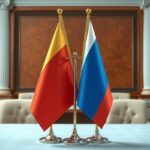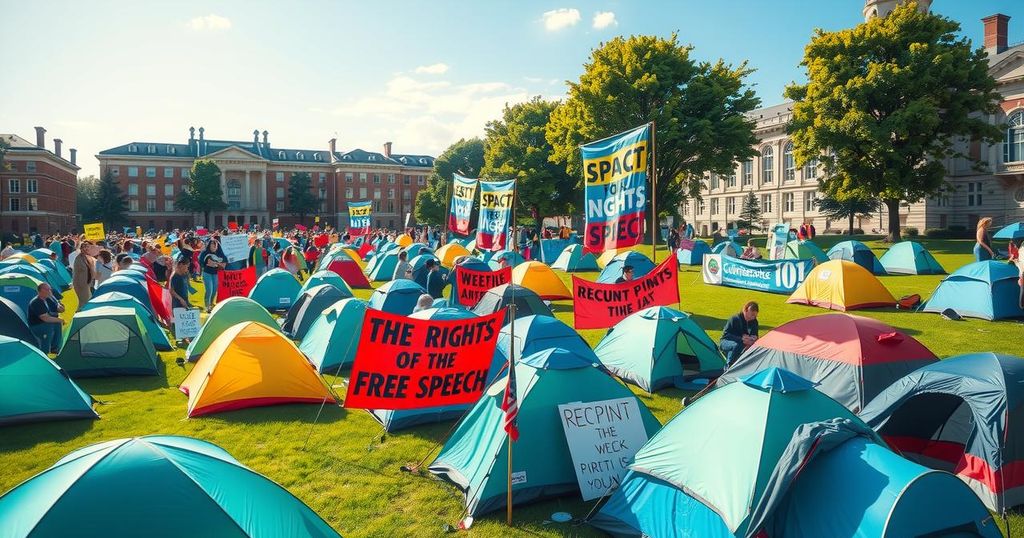Conflicts
Politics
ASIA, BELARUS, BILATERAL TALKS, CONFLICT RESOLUTION, DIPLOMACY, EUROPE, EUROPE/ASIA, GRIGORY KARASIN, MINSK, NORTH AMERICA, PUTIN, RUSSIA, RUSSIA-UKRAINE WAR, RUSSIAN INVASION OF UKRAINE, RUSTEM UMEROV, SAUDI ARABIA, STEVE WITKOFF, UNITED STATES, US, WAR, WASHINGTON, WITKOFF
Nia Simpson
US and Russia Initiate Ceasefire Talks in Saudi Arabia Regarding Ukraine
US and Russian officials commenced discussions in Saudi Arabia on a potential ceasefire in Ukraine, following a tentative agreement for a one-month halt on energy infrastructure strikes. While initial talks have been productive, significant uncertainty remains about the ceasefire’s implementation and scope. Both nations must address divergent demands for a lasting peace, with Ukraine maintaining skepticism about Russia’s commitments.
On Monday morning, US and Russian officials initiated discussions in Saudi Arabia regarding a potential ceasefire in Ukraine, following Donald Trump’s initiative to broker an agreement. Ukraine and Russia have tentatively consented to a one-month cessation of strikes on energy infrastructure after Trump engaged with their leaderships last week. However, uncertainty persists about the enforcement and extent of this partial ceasefire, particularly regarding its coverage of critical facilities like hospitals and bridges.
Initial meetings commenced with US officials and representatives from Ukraine on Sunday evening, with separate discussions scheduled with Russia on Monday at the Ritz-Carlton hotel in Riyadh. The US expects to facilitate exchanges between the nations to finalize the terms of the ceasefire and negotiate measures to ensure the safety of shipping within the Black Sea. US special envoy Steve Witkoff articulated, “The ultimate goal is a 30-day ceasefire, during which time we discuss a permanent ceasefire. We’re not far away from that.”
Further discussions have been held by the Ukrainian delegation regarding the protection of key energy facilities and infrastructure. Ukraine’s President, Volodymyr Zelenskyy, reported that the talks were progressing constructively, highlighting the usefulness of ongoing conversations. He also indicated plans to provide the US with a list of energy facilities that should be safeguarded from Russian attacks.
Rustem Umerov, head of the Ukrainian delegation, emphasized their commitment to achieving a fair peace and enhancing security as directed by President Zelenskyy. Russia’s presence in the discussions includes Sergey Beseda, an adviser to the FSB, and Grigory Karasin, who played a significant role in the 2014 Minsk accords.
In anticipation of the talks, Witkoff made contentious pro-Russian remarks, suggesting that the referendums in Luhansk, Donetsk, Kherson, and Zaporizhzhia indicated a majority desire among the population for Russian rule. These referendums received widespread condemnation in the West as illegitimate and viewed as attempts to rationalize Russia’s annexation of these regions, which marked a significant territorial seizure in Europe.
In a candid interview, Witkoff remarked on a portrait of Trump commissioned by Putin and relayed a personal narrative about Putin’s concern for Trump’s well-being. He controversially stated, “I don’t regard Putin as a bad guy. That is a complicated situation,” which may induce apprehension in Ukraine and European nations.
While diplomatic discussions unfold, Russia has escalated its military activities, conducting mass drone assaults on Ukraine that led to fatalities. Tensions remain high, as Moscow and Kyiv continue to diverge on acceptable peace treaty terms. Russia maintains several maximalist demands, which include halting foreign military assistance to Ukraine and ensuring recognition of the annexed regions, all of which Kyiv and its European allies find unacceptable.
Moreover, the Kremlin has firmly opposed the presence of Western troops in Ukraine, a condition considered essential by Kyiv for lasting security. Ukraine harbors significant skepticism towards any agreement with Russia, citing previous failures of Moscow to uphold commitments made in past negotiations.
The ongoing discussions between US and Russian officials in Saudi Arabia represent a pivotal moment in the quest for a ceasefire in Ukraine. While preliminary agreements regarding a pause in strikes on energy infrastructure have been reached, critical uncertainty remains regarding the execution and scope of such a ceasefire. Both nations must navigate complex demands and historical skepticism, particularly from Ukraine, regarding any commitments from Russia. The outcome of these talks could significantly influence the future of peace in the region.
Original Source: www.theguardian.com








Post Comment